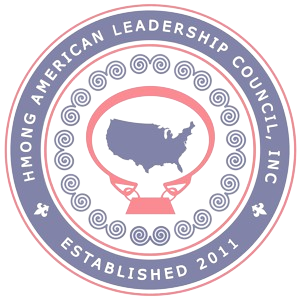- Secretary Dr. Paul Moua 651-500-0097
- info@halcs.org
- 2353 Rice Street, Suite 206, Roseville, MN 55113
HALC History
The Hmong community has a rich history of leadership and activism in the political arena, dating back to our earliest migrations and settlements in various regions around the world. From the mountains of Laos to diaspora communities across the globe, Hmong leaders have played pivotal roles in advocating for our people’s rights, representation, and well-being.


General Vang Pao was a prominent Hmong military leader who played a key role during the Secret War in Laos, a covert conflict that took place during the Vietnam War. Born in 1929, he served as a general in the Royal Lao Army and led Hmong forces against communist forces in Laos. After the war, he immigrated to the United States, where he continued to be involved in Hmong community affairs. Vang Pao passed away in 2011. His legacy is significant among the Hmong diaspora and in the context of Cold War history in Southeast Asia.
In Laos, Hmong leaders emerged as key figures in the struggle for self-determination and autonomy during the Indochina Wars. Despite facing immense challenges and persecution, they demonstrated resilience and courage in defending their communities and resisting oppression. Many Hmong leaders actively participated in resistance movements, fighting alongside allies for freedom and justice.
Following the Vietnam War and the resettlement of Hmong refugees in countries like the United States, France, Australia, and Canada, Hmong leaders continued their legacy of leadership and activism in their new homelands. They navigated the complexities of integration and adaptation while advocating for the needs and rights of their fellow refugees and immigrants.
In the political landscape of their host countries, Hmong leaders have risen to prominence in various capacities, including elected offices, community organizing, advocacy groups, and grassroots movements. They have served as trailblazers, breaking barriers and shattering stereotypes to become voices for change and progress in their communities.
Today, Hmong leaders continue to make significant contributions to their respective countries’ political discourse and governance structures. They champion issues such as education, healthcare, immigration reform, language access, and cultural preservation, ensuring that the voices and concerns of the Hmong community are heard and addressed.
As we reflect on our history of leadership in politics, we draw inspiration from the courage, resilience, and determination of those who came before us. We honor their legacy by advocating for equity, justice, and representation and empowering future generations of Hmong leaders to shape a more inclusive and equitable society for all.”
The Hmong community has a rich history of leadership and activism in the political arena, dating back to our earliest migrations and settlements in various regions around the world. From Laos to diaspora communities across the globe, Hmong leaders have played pivotal roles in advocating for our people’s rights, representation, and well-being.
